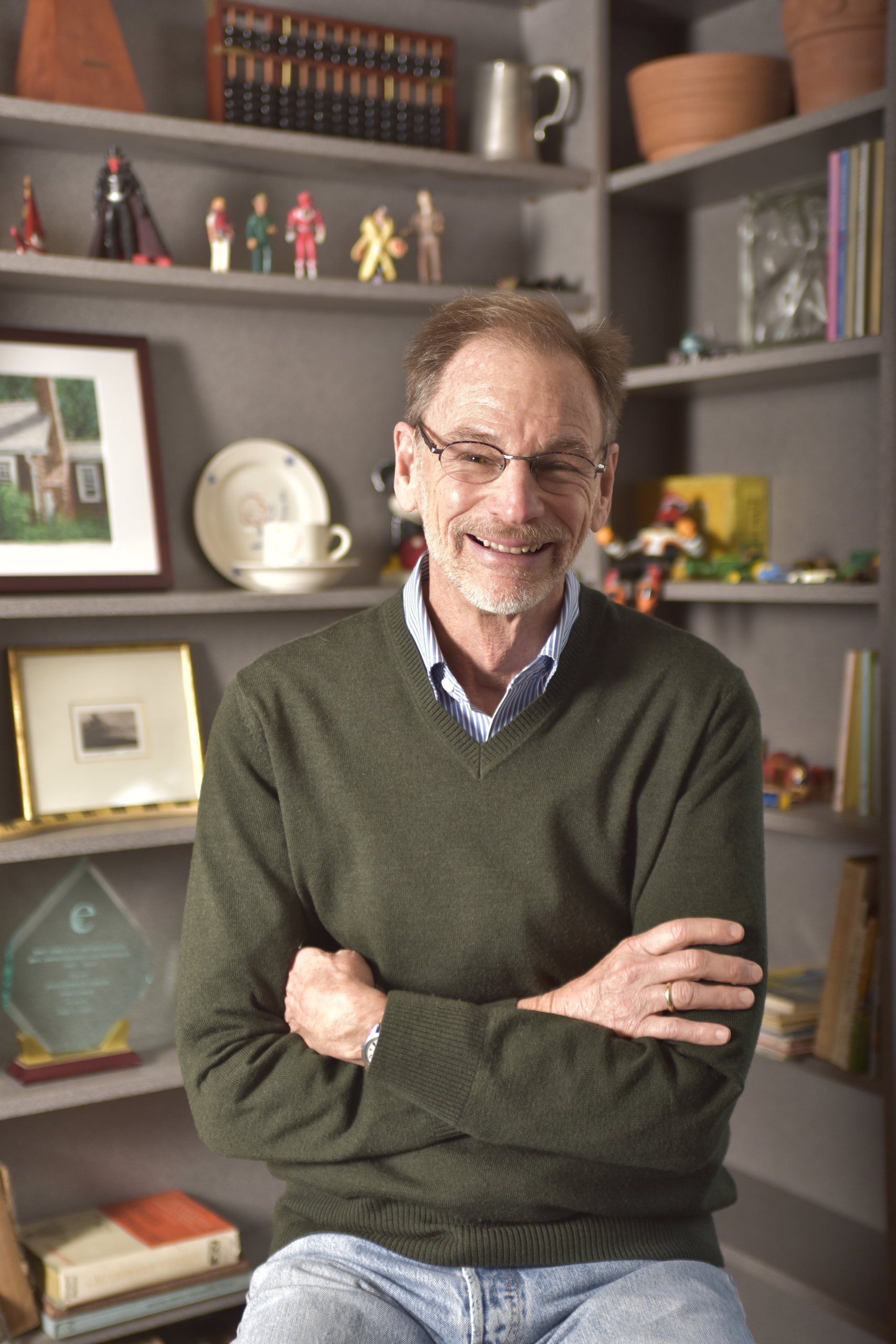Out East End: Jonathan Silin, a Lifetime of Education & 4 Books

Jonathan Silin has lived a life devoted to education. What began with 30 sent-off resumes reading, “I’d like to be hired as an early childhood teacher, and I have no training whatsoever,” evolved into a lifelong career in childhood education and scholarship. “I never looked back — never had second thoughts at that moment,” he says.
Silin has served on the faculty of the Bank Street College of Education, where he earned his Master’s Degree, worked as the editor in chief of the college’s Occasional Paper Series and written numerous essays and four books including Sex, Death, and the Education of Children: Our Passion for Ignorance in the Age of AIDS; My Father’s Keeper: The Story of a Gay Son and His Aging Parents; and Early Childhood, Aging and the Life Cycle: Mapping Common Ground.
At one point a Manhattanite, Silin has been visiting the East End since the 1960s and settled into Amagansett with his now-late life partner, photographer Robert Giard, in the ’70s. A full-time resident from 1974 to 2007, Silin now splits his time between his homes in Amagansett and Toronto, Canada.
In 1977, Silin was a founding board member for the East End Gay Organization, which sought to create a strong gay community in the area via informational forums with gay writers and politicians, consciousness raising groups intended to help bridge the gap between the “very distinct cultures” of gay men and lesbians, and even trips to major protest events, such as the first March on Washington for Lesbian and Gay Rights in October of 1979.
“A lot of the work in the early years of the organization, when I was most active, was about creating a sense of community,” he says. “It’s not like Provincetown where you have people walking on the street easily identifiable as gay, you have gay shops, all of that — the East End is much different.”
Silin’s HIV/AIDS advocacy efforts have also included speaking publicly about the biological and social symptoms and the nuances of risk reduction rhetoric, helping to establish a community-based AIDS agency and writing the article “The Language of AIDS: Public Fears, Pedagogical Responsibilities.”
He has also fundraised for the cause — at one point in 1983 he and Southampton designer Stan Herman co-chaired a fundraiser at New York Times restaurant critic Craig Claiborne’s Northwest Woods home and raised over $100,000.
A Conversation with Jonathan Silin
What has been your greatest contribution to the field of early childhood education?
I’m best well known in the field for having advocated, beginning in the 1980s, that we needed to be talking to children, young children, about the realities of their lives. Whether they were children who were growing in communities where there was a lot of drug addiction, HIV/AIDS, whatever it was that kids were experiencing, that needed to be part of the classroom conversation.
More traditional people resisted me and that idea. They said kids were too fragile, couldn’t manage it, couldn’t think about death and dying, but I had, from the beginning, this feeling that if this is what kids were experiencing and knowing about, then that had to be part of the curriculum in the classroom. If the classroom did not reflect children’s lived realities, children would be alienated from schooling, and adults would be abdicating their responsibility to sit alongside children in their difficult lives. …
In the world of scholarship, I’m probably best known for, as an out gay scholar, talking about the connections between our personal and professional lives and not wanting to see my life as compartmentalized but to understand how our research agendas are connected to the things that are important to us personally.
I fought against (the notion that study researchers are objective, with no personal stake) heavily … it’s better to articulate it than to keep it buried or hidden.
Is there a right age to learn about non-normative sexuality and gender expression?
The short answer is no, there is not a right age. My notion is that knowledge about gender and sexuality develops from the time an infant enters the world. … We’re deluding ourselves if we think that we’re introducing topics at a certain age.
You get this formal curriculum that says we can talk about masturbation when children are in 6th grade but not in 5th grade, or we can talk about gay lives in 3rd grade but not in 2nd grade.
What I argue is that life is messy, and we do not develop in a linear way. … If we’re not naming it in the classroom, some kid on the street or some kid they’re playing with is naming it and maybe misinforming, so I think the responsible adult position is living alongside children and helping them to make sense of the world.
And that making sense includes questions of non-normative lifestyles and lives. In the newspapers and media, there are stories about trans lives, nonbinary folks everywhere you turn. How can you not talk about it? Why would you make school so irrelevant to what kids are struggling to understand?
How can the school curriculum become more relevant to today’s students?
What you have often in schools is the lived curriculum — which is what happens in the classroom, what children and teachers are talking about — and then you have the formal curriculum that’s laid out in the school district office … We’re living in a historical moment where the pressures have never been greater to make the curriculum speak to the variety of standardized tests … so what becomes important in schools is what’s measurable, and if you can’t measure it, then it’s not important.
But I think the most important things in life are not measurable. I think schools are places, now more than ever, where kids need to learn to become active citizens, experience democracy firsthand in the classroom, listen to others, entertain multiple perspectives, be able to articulate their own perspectives and deal with the complex community that is the classroom. … There needs to be a balance.
With so much insight to share about early childhood development, might you be working on your next book?
No, I’m not. I’m happy now — and I think this is a reflection of my age — to be writing shorter pieces. I like short formats.
They force you to be concise, to make a clear argument. … I like commenting on things that are happening in my own life that have larger implications for people. Recently, I’ve been publishing a set of essays that reflect renewed interest in my Jewish heritage and past.
That’s been gratifying and interesting.
To learn more, visit jonathansilin.com.



